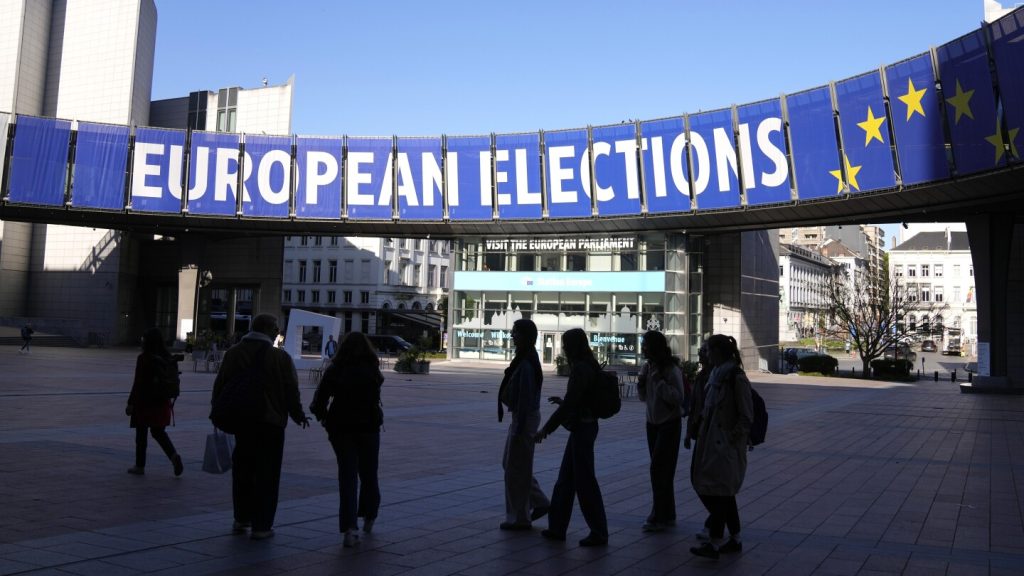The European Union celebrates Europe Day on May 9, but the focus this year is on the upcoming EU elections in June. The elections are deemed the most crucial in memory, with a rise of the extreme right and a possible shift away from the bloc’s climate policies. The continent is facing multiple crises, including a war in Ukraine, climate emergencies, and geopolitical changes, leading to fundamental questions about the EU’s purpose and future. The elections will be an existential fight between those who want less Europe and those who advocate for a more integrated EU to defend the interests of Europeans.
The EU elections will involve 27 nations and 450 million people choosing 720 parliamentarians to represent them over the next five years. The results on June 9 will signify whether the political landscape in Europe is mirroring the rightward shift seen globally. Surveys indicate that nationalist hard-right and populist parties are expected to make strong gains in the elections. Parties like Viktor Orbán’s in Hungary and Georgia Meloni’s in Italy are leading the charge, challenging the traditional socialist, liberal, and green forces that have dominated the EU parliament in recent years.
The battle in the EU elections represents a clash of ideologies, with some arguing for more joint policies on defense and global challenges, while others prioritize national interests and sovereignty. Issues like defense, security, and climate change are at the forefront of the debate. Proponents of a more integrated EU, like former Belgian Prime Minister Guy Verhofstadt, advocate for a full defense union to counter threats from countries like Russia and potential shifts in U.S. foreign policy. Meanwhile, opponents of EU interference, like Nicola Procaccini, criticize measures like the EU Green Deal and emphasize national decision-making over centralized EU policies.
The outcome of the EU elections will have significant implications for European-level policies, particularly on environmental issues, if right-wing and populist parties gain traction. The dominance of these parties could lead to opposition against ambitious EU actions to tackle climate change and may influence other legislative decisions. EU Commission President Ursula von der Leyen has already adjusted some climate rules and migration policies to accommodate a rightward shift within her center-right Christian Democrat party. A surge in support for anti-EU parties could shape the future direction of the European Union and its policies.
As Europe commemorates Europe Day and the legacy of one of its founding fathers, Jean Monnet, the continent faces a critical juncture in its history. The upcoming EU elections will determine the balance of power within the European Parliament and set the tone for the bloc’s direction in the coming years. With a wave of nationalist and populist sentiment sweeping across the continent, the results of the elections will have far-reaching implications for the future of the European Union and its role in addressing the pressing challenges of the 21st century.


